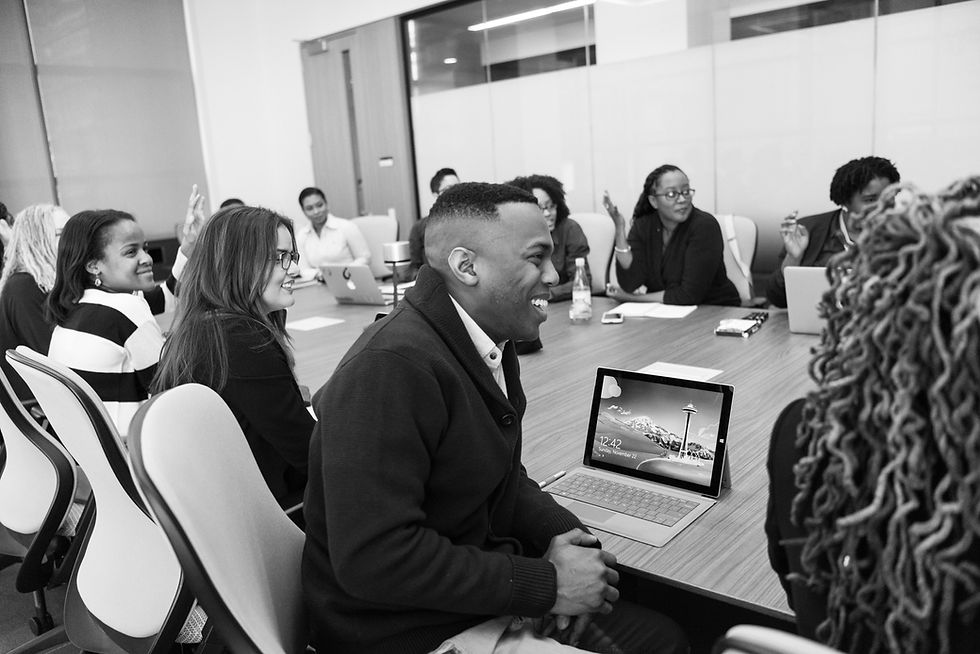“Rest as Resistance”: Sustaining Leadership in a Time of Burnout
- Nina Mauceri
- Sep 25, 2025
- 3 min read

School leadership is exhausting. Each day brings a stream of decisions that ripple out to affect
students, staff, and families. Many of us keep pushing, telling ourselves we’ll rest later. But later rarely comes.
School leaders are consistently asked to do more with less—and it is exhausting. We are asked to navigate shrinking budgets, shifting policies, and growing demands, often without the resources necessary to meet them. Today, when our most marginalized students are facing unprecedented uncertainty—LGBTQ+ youth, undocumented students, and students with special needs—leaders feel the call to step up. And we want to. But the reality is this: we cannot support others when our cups are empty.
In “Rest as Resistance: A Manifesto” (Hersey, 2022), Tricia Hersey reminds us that rest is not a
luxury. It is a radical act. It is resistance against systems of overwork and burnout that
dehumanize educators and exploit our labor. For leaders committed to equity, this message is
urgent: if we want to transform schools into places of justice and care, we must also model care for ourselves.
The data back up what many of us feel in our bones: educator stress remains elevated. In 2024,RAND found K–12 teachers reported frequent job-related stress and burnout at rates far above other working adults, with women reporting the highest levels. Nearly half of school leaders say their stress is so high they’re considering leaving the profession, and over a third are thinking about leaving within three years.

At the same time, students’ mental-health indicators remain deeply concerning—and inequities are stark. The CDC’s 2023 YRBS shows nearly 3 in 10 high school students reported poor mental health in the past month, with LGBTQ+ students reporting the worst outcomes across multiple indicators. ACEs data from CDC’s 2024 MMWR supplement show high prevalence of emotional and physical abuse and household mental-health challenges, each associated with depression and suicide risk. GLSEN’s National School Climate Survey documents how hostile school climates harm LGBTQ+ students’ well-being and educational outcomes, while TheTrevor Project reports roughly 39–41% of LGBTQ+ youth seriously considered suicide in the past year, with even higher rates among trans and nonbinary youth.
In my own research, I saw this tension up close. In my ethnographic study of an urban charter
high school working to become more LGBTQ-inclusive, I found that educators genuinely
wanted to do more to support LGBTQ+ youth—but were often exhausted, stretched thin by
competing demands and the relentless pace of school life. That gap between intention and
capacity is exactly why rest must be understood as integral to equity work.
So what might it look like to embrace rest as a leadership practice?
Scheduling pauses into your workday—not as an afterthought but as part of your plan.
Protecting evenings or weekends without guilt. Saying no to tasks that do not align with your core commitments. Modeling rest in ways that give your staff permission to do the same.
Equity work requires clarity, courage, and creativity—all of which are impossible without
replenishment. Rest is not separate from the work; it is the work. As Hersey (2022) writes, “Rest is a portal to imagination.” And imagination is precisely what we need to re-envision schools that honor every child.
This post is inspired by the work of Tricia Hersey (@thenapministry), founder of The Nap
Ministry, based in Georgia, and author of “Rest is Resistance: A Manifesto” (Hersey, 2022).
At Mauceri Education, we take this charge seriously. That’s why we are experimenting with a
new form of professional development—one that weaves wellness directly into learning so that leaders can grow and replenish at the same time.
To experience this model in action, join us on November 25th in Brooklyn, NY for Leading
for Belonging: A Wellness and Leadership Retreat. Details to Follow Shortly - Registration Required - Limited Seats visit - https://maucerieducation.org

Together, we’ll blend restorative practices—yoga, arts workshops, and a healing space—with professional learning on how to support marginalized students in today’s climate. This is your chance to fill your cup while strengthening your capacity to lead for equity and belonging.
*Written by Mauceri Education, with AI editing assistance.







Comments